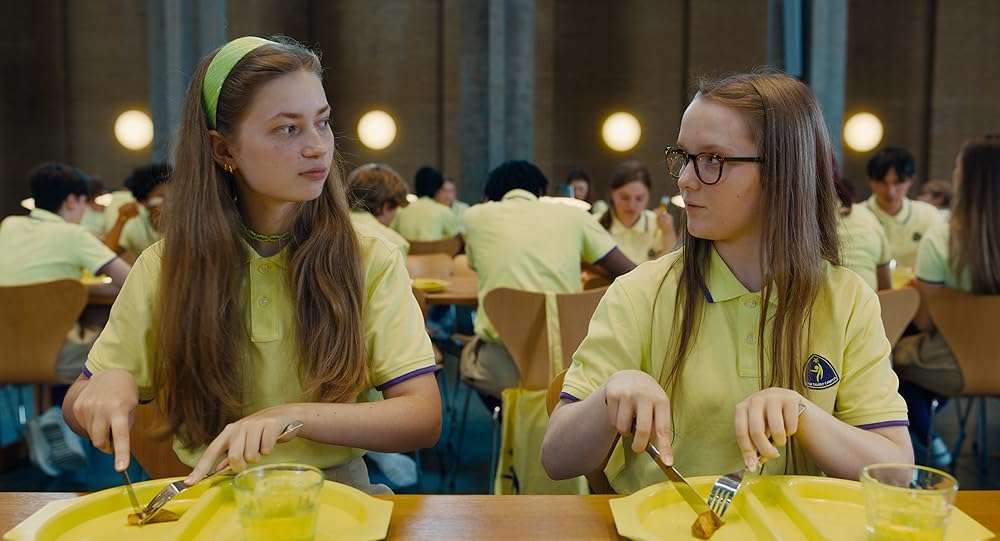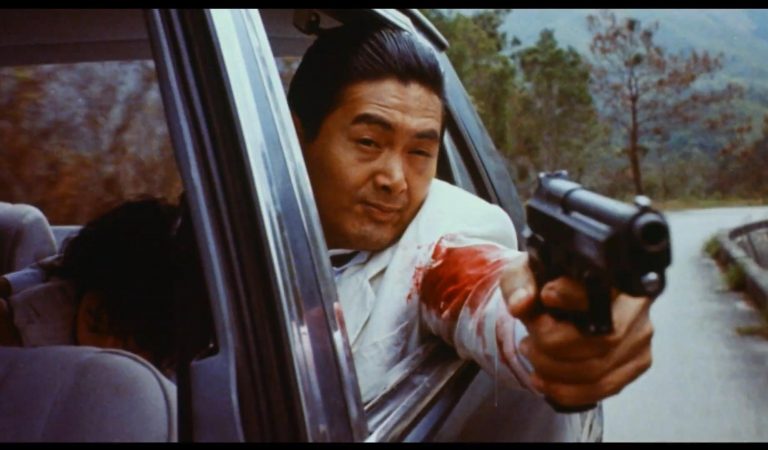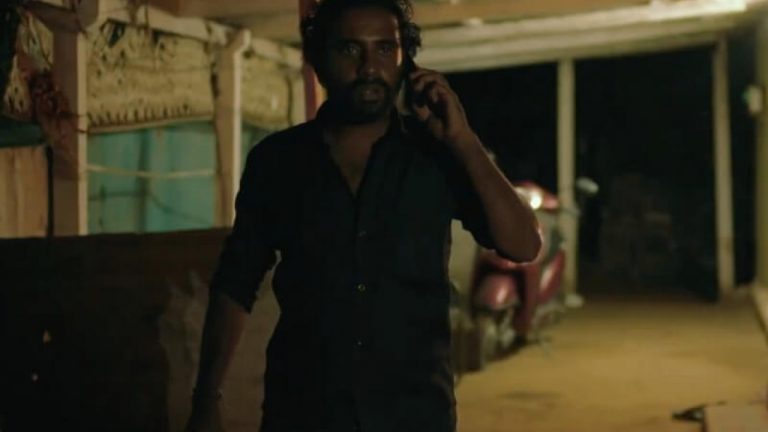As I watched Jessica Hausner’s new film, Club Zero, I was constantly struck by questions about cinema that is hyper-aware of its audaciousness. How far can a transgressively presented idea go if the writing ultimately relies on a bunch of half-baked, lazily fleshed circumstances bereft of any throughline or solid characterization? Can it even land and become something that actually provokes serious, considered thought? The biggest problem with Club Zero is that it never rises above its obsession with the centrality of a particular idea and how it can be effectively manipulated into altering someone’s belief of reality and convention.
The supposed bravery and ambition of the idea underlying the film isn’t sufficiently padded thanks to the screenplay by Hausner and Geraldine Bajard, which doesn’t poke at anything substantive beyond terribly contrived dialogues written in the manner of bluntly underlining its own metaphors. I kept wishing it was shaped into something properly spine-tingling and nerve-jangling, but the film remains so busy foisting a conscious affectation on itself that I couldn’t take any of the exchanges among the entranced characters with the sober regard it feigns.
The film is set at an elite boarding school, presumably somewhere in the UK. The location registers as lesser than an afterthought as if to suggest the story carries immediate, universal import. However, the decision to remove the specificity of setting and eventually character motivation reduces the political anger of the drama despite several direct, overtly planted jabs at the rampant consumerist, capitalist society, delivered in a single, dispassionate rant by one of the school kids.
Right off the bat, the film takes us into one of the classes of the newly introduced Conscious Eating course guided by Miss Novak (Mia Wasikowska). Only a handful have signed up for the course, a few explaining they joined to gain self-control, some for environmentally friendly reasons, and one for notching up additional points for availing a scholarship. Various kids have come with different agendas and expectations, but everyone is wholly naïve as to what Miss Novak has up her sleeve.
The tenets of the course entail a singular, private relationship with one’s food, cutting off everything else. Take smaller bites and chew slowly. As the classes proceed, the bites become smaller, the pupils more intent on dividing up the morsel than caring to eat. Connections are made with autophagy that will cleanse the body, increase willpower, and even lead to a prolonged lifespan, as Novak emboldens her students. Expectedly not everyone takes quickly to what she’s endorsing.
There’s a relative share of cynicism, but the film isn’t interested in indulging that. With time, more lessons, and Novak’s expert canny psychological maneuverings, intruding into their personal insecurities and projecting her apparent empathizing kindness, almost all hop aboard. Her class becomes this tight silo enclosed unto itself, detaching itself from society and the old beliefs which Novak insists must be discarded.

“They don’t see you for who you are,” Novak nudges them into reposing their utter, blind faith in her, cajoling them into trusting her practice as she gradually pushes them toward a plant-based mono diet and even further. The students have their own messy backgrounds, dutifully relayed to the viewer, which seems designed to rationalize their growing dependence on Novak as something more than a warped mentor figure. They are practically mesmerized by what she has to offer, things to say, couched in her reassuring demeanor. One has bulimia, and another has body image issues inflicted by parents. For all its purported risqué, which the film is very giddy about, the screenplay leaves most of its provocations thinly realized. The bends into the farcical also come off as half-committed.
Hausner reserves a lot of the film’s later scorn and amusement for the bewildered parents, but the messaging turns increasingly muddled as one is left to wonder why the critique, despite advertent targets, borders on a pronounced lack of clarity. The austerity in Beck Rainford’s clinically meticulous production design and Tanja Hausner’s costumes feels like a bland additive, the visual artifice verging on strained instead of building a coherent, compact world that is coming undone at the interruption of this mystifying teacher who preaches to a vague, ambiguous idol referred to as ‘Holy Mother.’
Wasikowska, never a dull presence, tries to lend credibility and persuasion to the clique Novak is assembling, but her character is so deliberately rendered inscrutable, with nary a backstory, that the fascination her students have with her wears off for the viewer fairly quickly. Early in the film, Novak tells the principal she can also work on weekends as she would be free. Throughout the film, insinuations are made about her perceiving her pupils as children she never had.
The influence she starts wielding on them draws them away from their own parents. “She bewitched us,” an overwhelmed student sighs, exiting her class. The discomfiting, nauseating mystery woven around the cultic beliefs propagated by Novak is dissipated by the screenplay itself that revs up a riveting momentum, steeply accentuated at frequent intervals by Markus Binder’s score, but doesn’t quite know what to make of it.








